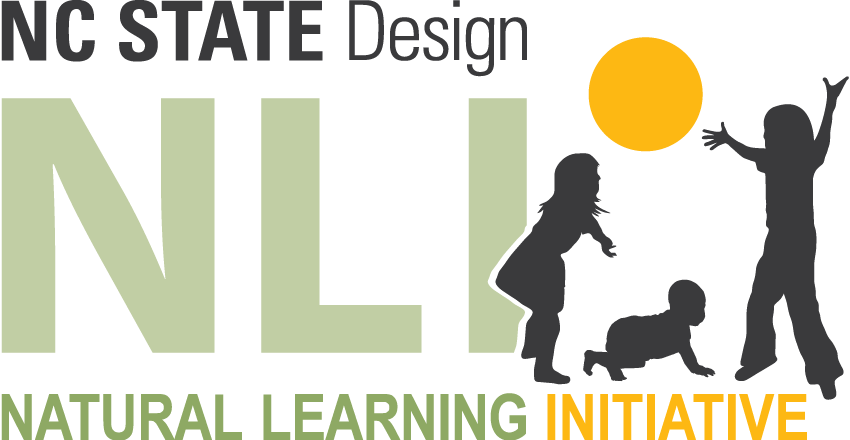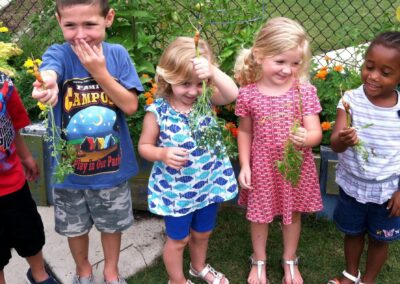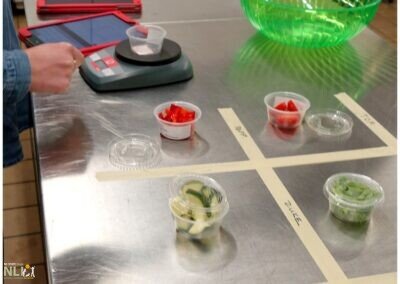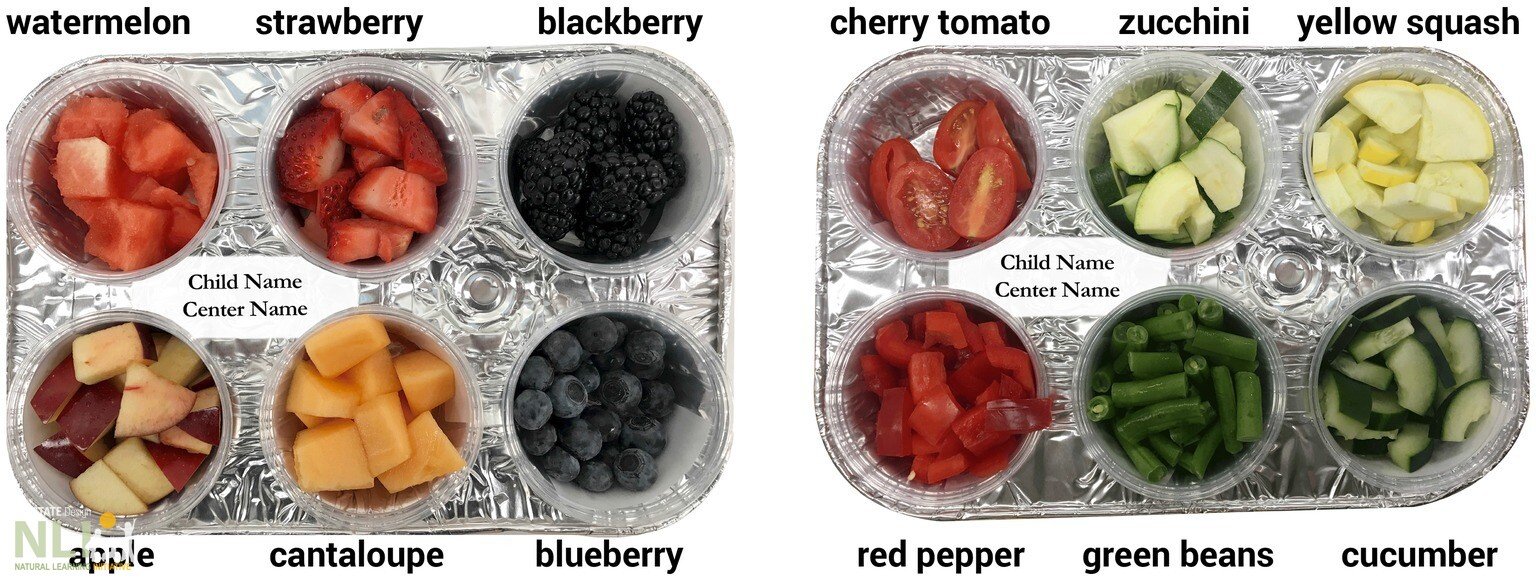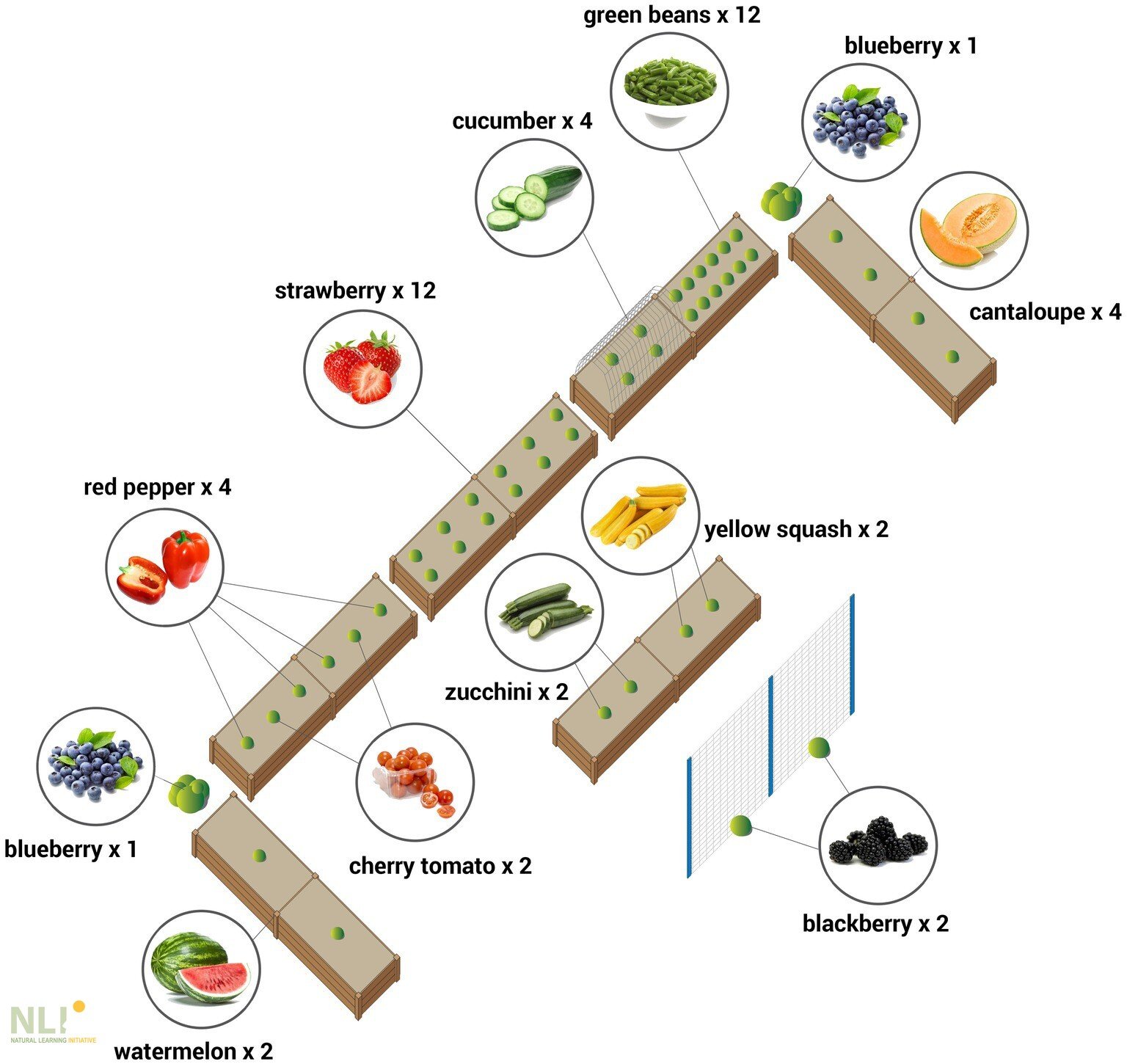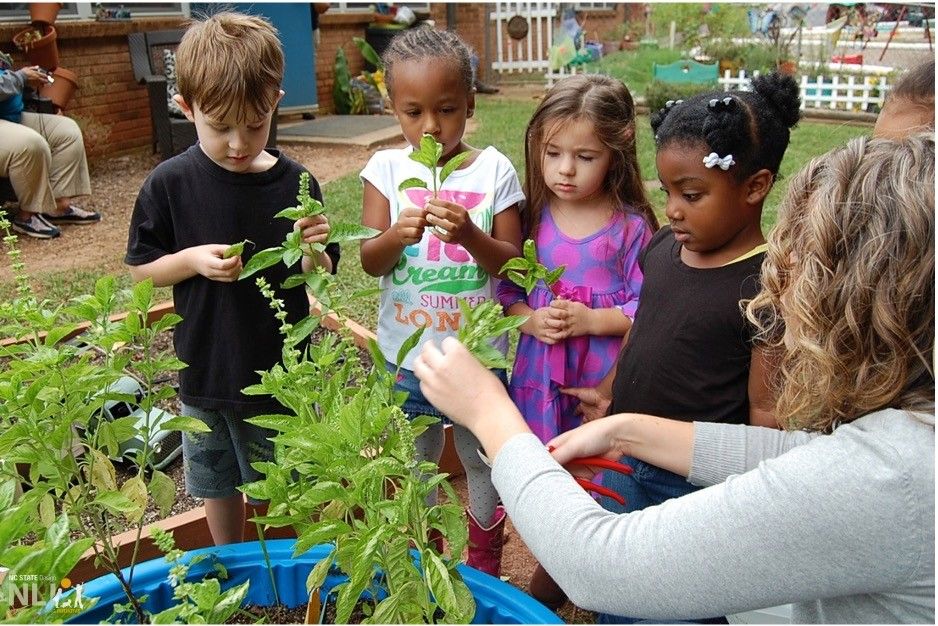Hands-on childcare garden intervention: A randomized controlled trial to assess effects on fruit and vegetable identification, liking, and consumption among children aged 3–5 years in North Carolina
Authors: Nilda G. Cosco, Nancy M. Wells, Daowen Zhang, L. Suzanne Goodell, Muntazar Monsur, Tong Xu, Robin C. Moore.
Nilda Cosco and research colleagues at Cornell University, NC State, and Texas Tech University, described in a recent article the impact of hands-on fruit and vegetable (FV) gardening on the healthy eating behavior of preschool children attending childcare centers serving disadvantaged communities. The findings are largely consistent with prior research (until now, mainly with elementary school-aged children) and extend the evidence to preschool children. Results also demonstrate the effectiveness of the POD (Preventing Obesity by Design) gardening component.
COLEAFS research study. As an outcome of the USDA-sponsored COLEAFS project (Childcare Outdoor Learning Environments as Active Food Systems), the article describes the results of a randomized controlled trial conducted by NLI aimed at assessing the effects of gardening on FV identification, consumption, and liking among children 3-5 years old.
Significant, positive effects on identification and consumption were found for both fruit and vegetables during tasting sessions – more for fruit than vegetables (consistent with prior research). There was no significant effect on children’s liking of fruit or vegetables (possibly because of measurement using digital images on a screen instead of real fruit and vegetables with preschool children still at the preoperational child development level).
Lifecourse learning. Gardening at childcare centers may have a potent influence on young children’s learning about fruits and vegetables and healthy dietary behaviors. Early exposure to gardening may yield a return on investment throughout the life course – impacting a healthy diet and associated health outcomes. This is particularly important in disadvantaged communities, where children’s health is challenged by multiple risk factors.
Gardening in disadvantaged communities provides an opportunity to reduce disparities in healthy eating, particularly for African American and Latino children in populations seldom the focus of research. Furthermore, gardening impacts may be amplified compared to similar interventions in advantaged communities and help achieve permanent equigenic conditions. While early interventions have the potential to affect change over the life course, environment and behavior studies of preschool children remain a critical gap in the literature.
Additive effect on daily FV intake. Although the finding that snack-time consumption increased by 25 grams of fruit and 14 grams of vegetables may seem modest, when scaled across daily snacks and meals, the total may equate to amounts closer to recommended daily consumption of three cups of FV daily. This finding is especially relevant to the vulnerable, under-studied population of children within low-income communities attending childcare.
Social return on investment (SROI). The approximate installation cost of each COLEAFS garden was $1500 (2018 dollars) for materials and labor – a small investment compared to the renovation cost ($50K – $100K) of a complete, best-practice outdoor learning environment. Pedagogically, gardening offers a rewarding opportunity for interdisciplinary outdoor learning (including STEAM), easily adopted by classroom teachers. A starter garden can be as small as a tomato-basil salad mix, extending experiential learning during the preoperational preschool years, with attendant skill acquisition supporting dietary impacts, scaling up to protective life course health benefits.
